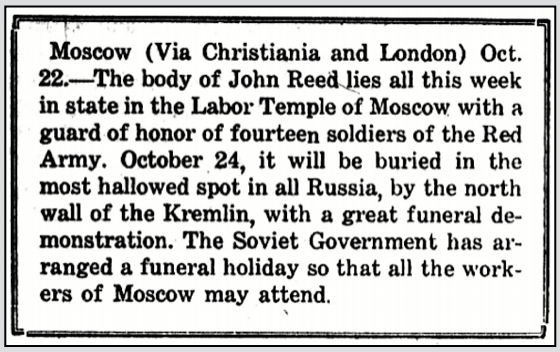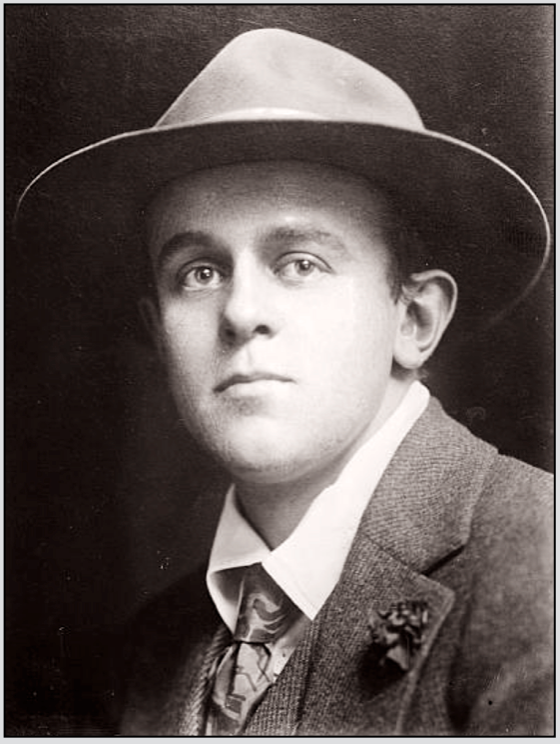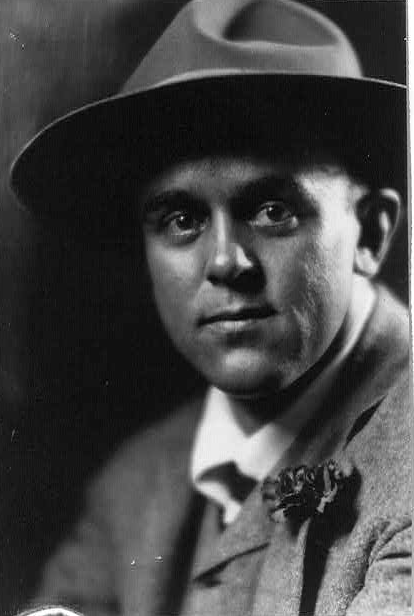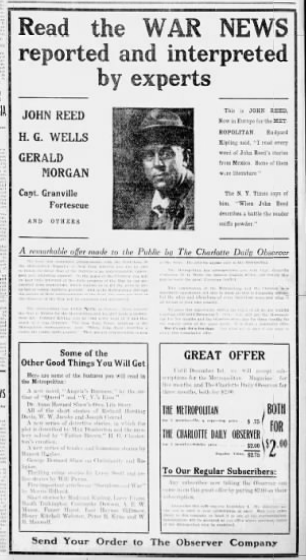 ———-
———-
Hellraisers Journal – Sunday October 31, 1920
Moscow, Russia – Great Funeral Demonstration Panned for John Reed
From the Cleveland Toiler of October 30, 1920:
John Reed Is Dead
By Robert Minor.
The Tzar Nicholas once complained that he was unable to have the best of Russian music because, unfortunately, the best composers were guilty of the crime of sedition and he could not encourage them.
Today the Tzar Nicholas lies in a hole in the ground of a Siberian village, and the sweetest music of Russia is played in his palace to the ears of the plain workingmen for whom the composers really wrote their music anyway.
In Moscow there died the other day a great American literary artist, John Reed. He was a young man, only thirty-three, and already known about the earth as one of the finest of American artists.
John Reed began his career ten years ago as a reporter for the New York World and for the New York Tribune. He did well. Very soon he graduated from the ranks of daily reporters and was acknowledged as one of the most brilliant writers on the high-priced magazines that spend their thousands to get the best of writing.
And what is the reward of such success? A Riverside Drive apartment, a country estate, an automobile the right to associate with the sort of people that live that sort of life. The people that live in those ways are stupid. They are drunk most of the time. They never know what to say, and they like to have a John Reed around to say the things they can’t themselves think of. They buy expensive clothes for themselves and their women whom they also have bought; and they eat and they drink, and they have headaches and they quarrel with their women-cattle, and the women quarrel with their men cattle-herders, and then they don’t know what to do next. So they go and get young writers, artists that are fresh and strong and young, and they bring these in and eat with them and drink with them, and get the young artists to talk for them.
And the young artists are supposed to be grateful for the company of the expensively dressed persons and for the dinners and the automobiles and the “social position.” If the young artists are grateful, they become more and more like the people that surround them, and slowly they lose their art. They sink into the position of clowns for the besotted aristocracy, in private life, and they become writers of excited drivel for the magazines and the book market, drivel without real connection with life drivel that flatters their surroundings and lures the jaded clerks and the middle class to strive to succeed in business and thereby gain a place in the automobile-cock-tail-Riverside Drive drunken swirl of the stupid propertied class.
The artist grows old, becomes a bourgeois, stodgy and dreamless, depends upon his cocktail, and he quarrels with his wife about silk dresses that no artist’s mind should ever bother about.
That is the way that most American artists have gone in the past; that is success as the bourgeois world offers it; that is the way they can win approval of Tzars of Russia and Tzars of Fifth Avenue.
John Reed looked with young eyes upon the success that was offered him. He saw that it was not real. He saw that the silk was really rags and the wearers’ fools. He didn’t listen to their stupid talk, but listened to workers in mines and factories and I. W. W. halls and around camp fires, and he heard them say that the day was coming when the palaces would be emptied of fools and drunkards and that they, the workers, would live there. And John Reed liked that. It furnished him with a new dream. It made his young blood jump again, it kept him an artist. John Reed became a revolutionist. He sang his song louder than ever, and sang it for the revolution.
He went to Mexico to find the revolution. He went to Russia and did find it. And what he wrote back from Russia made the thousands of hearts of his fellow-workers in America beat faster. It made them look at the palaces here in America in a different way, and it made them look upon the besotted American aristocracy as a conquerable class. Then Reed came back to America and here gave his mind and strength to organizing workers in America for what the workers proved could be done in Russia.
The propertied classes in America shook with rage at John Reed. In every city is a committee of business men called a Grand Jury, which has the function of picking out all persons who endanger the private ownership of the palaces and and automobiles and country estates. Two of these Grand Juries one in New York and one in Chicago picked out John Reed as a criminal, indicted him and demanded that his voice be smothered in jail.
Reed eluded them and went back to Russia, went like a workman so often goes, stowed away in the coal-hole of a ship, for America would not give a passport to its great writer now…..
So the great American died, and the wealthy class is glad that he is dead. Like the Tzar Nicholas they could not sanction Reed’s art any more, after he spoke for the workers; and he died under their indictment as a criminal.
It all goes to show that the artists are ours, the artists belong to the workers, and to be artists at all they must dream-dream of things that frighten Tzars and Grand Juries-dream of workmen in palaces. Art belongs to the Revolution.
John Reed belonged to the workers.
—————
[Photograph and emphasis added.]
~~~~~~~~~~~~~~~~~~~~~~
SOURCES
Quote John Reed, Weak Gov Rebellious People, 10 Days Chp III, 1919
https://play.google.com/books/reader?id=-voDAAAAYAAJ&hl=en&pg=GBS.PA42
The Toiler
(Cleveland, Ohio)
-Oct 30, 1920, page 4
https://www.marxists.org/history/usa/pubs/thetoiler/n143-oct-30-1920-Toil-nyplmf.pdf
https://www.newspapers.com/image/174625188/
IMAGE
John Reed, LOC, -by Pirie MacDonald about Nov 1914
-see note below
https://www.loc.gov/pictures/item/2014699295/
See also:
Tag: John Reed
https://weneverforget.org/tag/john-reed/
John Reed
https://spartacus-educational.com/Jreed.htm
Note re date of photo:
I believe this photo was taken at same sitting as photo above-https://www.loc.gov/pictures/item/2002705905/
See: John Silas Reed by Pirie MacDonald-
https://npg.si.edu/object/npg_NPG.78.156?destination=portraits/search%3Fedan_q%3DCelebrities%26edan_fq%5B0%5D%3Ddate%253A%25221920s%2522%26edan_local%3D1
Earliest I find this photo is Nov 22, 1914 in Charlotte (NC) Observer:
https://www.newspapers.com/image/616413038/
Works by John Reed
John Reed Internet Archive
https://www.marxists.org/archive/reed/index.htm
July 1914-Metropolitan: “War In Colorado”
https://babel.hathitrust.org/cgi/pt?id=uva.x030708269&view=1up&seq=1
https://play.google.com/books/reader?id=KpdNAAAAYAAJ&hl=en&pg=GBS.PA10
https://books.google.com/books?id=8YvIAAAAMAAJ
https://books.google.com/books?id=3G4fAQAAMAAJ
~~~~~~~~~~~~~~~~~~~~~~~~~~~~~~~~~~~~~~~~~~~~~
Internationale-from “Reds”




